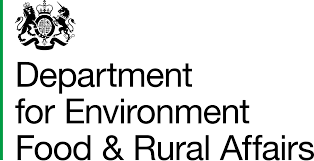HISTORIC PRESS RELEASE : International Action Against Child Poverty conference- Concluding statement by Clare Short and Gordon Brown [February 2001]
The press release issued by HM Treasury on 26 February 2001.
CONCLUDING STATEMENT BY CLARE SHORT, SECRETARY OF STATE FOR INTERNATIONAL DEVELOPMENT AND GORDON BROWN, CHANCELLOR OF EXCHEQUER
Background
We enter the 21st century with nearly 10 million children dying every year before their first birthday. 12 million die before their 5th birthday. And 120 million children are without even 5 years of schooling. In the face of these tragic facts – and in the year of the United Nations Children’s Summit – all the participants at the conference today recognised we must do much more to tackle the poverty of today’s children and so build hope for the next generation.
Child poverty and the seven international development targets
Over the last ten years the nations of the world have agreed upon seven international development targets to be achieved by 2015. Achieving these targets would mean halving the proportion of children living in poverty, making primary education accessible for all children, ending discrimination against girls in education, dramatically improving the health position of the poorest children and their families and finally reversing the trend of environmental degradation so that there is a sustainable world for our children to inherit.
Reaffirmation of commitment to seven international targets
Today, we all therefore reaffirmed our joint commitment to making every possible effort to reach these international targets and acknowledged the need to intensify our collective efforts. We aim, through achieving these targets, to offer this generation of poor children the opportunities denied to their parents.
Roles and responsibilities
We all welcomed the stronger leadership role that developing countries are starting to play, such as through the Millennium Programme for the Renaissance of Africa and the Poverty Reduction Strategy process.
As representatives from developed and developing countries, the private sector, non-governmental organisations, faith communities and multilateral institutions, we recognise the need to work within our powers and responsibilities to ensure that a greater effort is made to guarantee that the International Development Targets are met.
Our joint responsibility for the targets must reinforce, not diminish, accountability for the outcome. We all have a joint responsibility to work towards these goals, with each accountable for actions within specific responsibilities.
Today, we agreed to work together to commit to a clear set of specific actions for which we will all be individually accountable. These commitments will enable us to deliver the international targets and so break the intergenerational cycle, which would otherwise mean that today’s poor children would become the parents of tomorrow’s poor children.
Our discussions today have been a key step in the process of developing such a set of actions. But we will need to work together over the coming months to develop these further, with the aim of finalising them in time for the UN Special Session on Children.
We therefore welcome the specific commitments made by representatives today in particular that
UNICEF will
- continue to invest in programmes to reduce infant and under-five mortality and promote child survival;
- increase the share of resources for basic education to ensure all children get a quality primary education, with a special emphasis on girls.
UNDP will
- ensure that UN development agencies focus their efforts around realisation of the Millennium Declaration and the achievement of the International Development Targets;
- work with government, civil society and private sector partners to support nationally owned, inclusive Poverty Reduction Strategies;
- ensure that the UN system plays a full part in facilitating both government led programmes and donor co-ordination;
- help developing countries set, measure and reach national poverty reduction and human development targets. To this end, UNDP will support country teams produce, in partnership with developing countries, regular national reports which benchmark progress towards the achievement of the Millennium Declaration and the International Development Targets;
- aggregate national reports into the Secretary-General’s annual report on progress towards the achievement of the Millennium Declaration and International Development Targets;
- upgrade the quality and impact of National Human Development Reports;
- make the Secretary-General’s Global Compact ‘local’ by organising action-oriented dialogue among stakeholders, including business, civil society and government, with a view to promoting sustainable and broad-based economic development.
IMF and World Bank will
- continue actively to use the International Development Targets as a common framework to guide policies and programmes and to assess their policies’ and programmes’ effectiveness;
- help governments to broaden participation and develop greater ownership of macroeconomic, structural and social policy issues;
- support governments in developing programmes, policies and budgets that are in line with comprehensive poverty reduction strategies and which are pro-poor and pro-growth, shifting support towards activities that demonstrably benefit poor people and promote both equity and efficiency;
- ensure that appropriate social impact analysis is undertaken of structural reform measures, so that countervailing measures can be put in place to support groups adversely affected by reforms;
- ensure appropriate flexibility in fiscal targets of IMF programmes (such as in post conflict situations, in response to unexpected external shocks; and to ensure that development assistance is genuinely additional to a country’s own resources);
- assist governments to improve accountability of public resource management (including by providing regular assessment in their IMF review);
- assist governments to cost and regularly assess what needs to be done in order to achieve their poverty reduction targets and the International Development Targets;
- strengthen support to countries by further decentralisation of World Bank functions and expertise.
UK will, and encourages other developed countries to
- make every effort to increase development assistance;
- increase the proportion of development assistance going to the poorest countries;
- untie all development assistance;
- coordinate their efforts more effectively and ensure development assistance is directed at the needs of the poorest, without consideration of the convenience of the donor;
- base their assistance on countries? own Poverty Reduction Strategies by:
- limiting the administrative burdens placed upon recipient countries;
- ensuring compatibility with countries? budget-setting priorities and procedures work;
- ensuring donor support is used in support of long-term reform programmes;
- ensure that level of development assistance is predictable;
- work to remove barriers to market access for all goods from least developed countries;
- ensure export credit supports to poor countries are not used for unproductive expenditures and tighten controls on small arms transfers;
- renounce the right from this year onwards to any benefit from the historic debt owed by the HIPC countries, in addition to committing to write off 100% of all bilateral HIPC debts starting at decision point.
Developing countries will
- analyse macroeconomic policies for impact on poverty reduction;
- ensure that poverty reduction policies fight all aspects of inequity in their countries;
- ensure that Poverty Reduction Strategies demonstrate how they will enable International Development Targets to be delivered;
- adopt fully costed programme budgets and comprehensive long term expenditure frameworks;
- strengthen capacity to spend debt relief savings and new assistance effectively on poverty reduction programmes and on improving the quality of services;
- take the lead in co-ordinating donors, NGOs, faith groups and the private sector in supporting country Poverty Reduction Strategies;
- continue their efforts to empower the poor, by integrating participation into all their democratic structures;
- work to strengthen the accountability of financial management systems so as to eliminate corruption;
- accelerate efforts to improve domestic resource mobilisation to increase domestic funding for poverty reduction;
- tightly limit new external borrowing for productive purposes;
- improve the access of the poor to equitable justice systems;
- intensify efforts to promote peace in their regions;
- strengthen health care systems and access for poor people (including putting in place universal primary health care systems) so that existing HIV/AIDS drugs and the new support investment treatments can be made available to all.
Private sector and medical research community will
take the lessons and commitments made today to a parallel conference on the role of business to be held later this year;
- develop at that conference an action plan to meet this challenge.
Group of seventeen NGOs will, and encourage other NGOs, Faith groups & committed individuals to
- raise public awareness regarding the outrage of child poverty and build global solidarity with poor girls, boys, women and men as they struggle to secure their rights and better their lives;
- in partnership with poor communities and southern civil society organisations work to overcome the causes of poverty and injustice and specifically to:
- ensure that the poorest and most marginalised including children speak and are heard in the decisions, processes and institutions affecting their lives including Poverty Reduction Strategy Papers and other resource allocation processes;
- ensure all decision makers are held accountable to poor people of all ages for concrete progress towards the realisation of rights and the achievement of the International Development Target;
- campaign and advocate north and south for urgent action on international debt, trade, education, health, HIV/AIDS, conflict and violence and other key issues impacting directly on the ability of poor countries and people to secure rights and achieve the International Development Targets;
- assist government and communities through funding expertise and other inputs in developing sustainable and participatory solutions that improve the daily lives of poor children and their families.
Next steps
We all agreed on the need to take action and to pursue any further measures necessary in the months and years ahead to ensure the 2015 targets are met in every country. We will be doing this in all the fora we all work in, such as the HIPC Finance Ministers meeting in June 2001, the UN Special Session for Children in September 2001, the World Bank and IMF in the Spring and Annual meetings, and as we develop national and international policy. The aim will be, year by year, country by country, to improve the impact of our work in support of the world’s poorest children.



